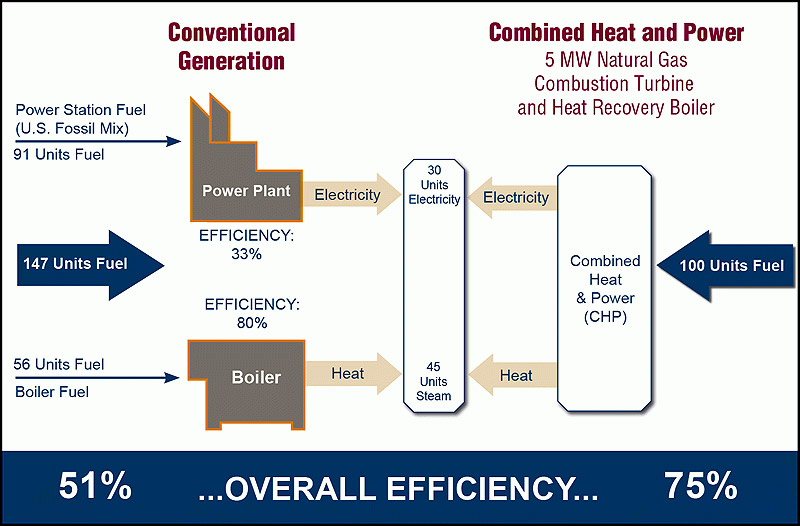
Environmental Benefits of Cogeneration
CHP systems offer considerable environmental benefits when compared with purchased electricity and thermal energy produced on site. By capturing and utilizing heat that would otherwise be wasted from the production of electricity, CHP systems require less fuel to produce the same amount of energy.
Because less fuel is combusted, greenhouse gas emissions, such as carbon dioxide (CO2), as well as other air pollutants like nitrogen oxides (NOx) and sulfur dioxide (SO2), are reduced.
The following diagram shows the magnitude of reduced CO2emissions of a 5 megawatt (MW) natural gas-fired CHP system compared to the same energy output from conventional sources.

This is an example of a typical CHP system. To produce 75 units of electricity and useful thermal energy, the conventional system uses 147 units of energy inputs-91 for electricity production and 56 to produce useful thermal energy-resulting in an overall efficiency of 51 percent. However, the CHP system needs only 100 units of energy inputs to produce the 75 units of electricity and useful thermal energy, resulting in a total system efficiency of 75 percent.
Combined Heat and Power (CHP) Energy and Emissions Savings Calculator (XLSM)
(Information courtesy of www.epa.gov)
